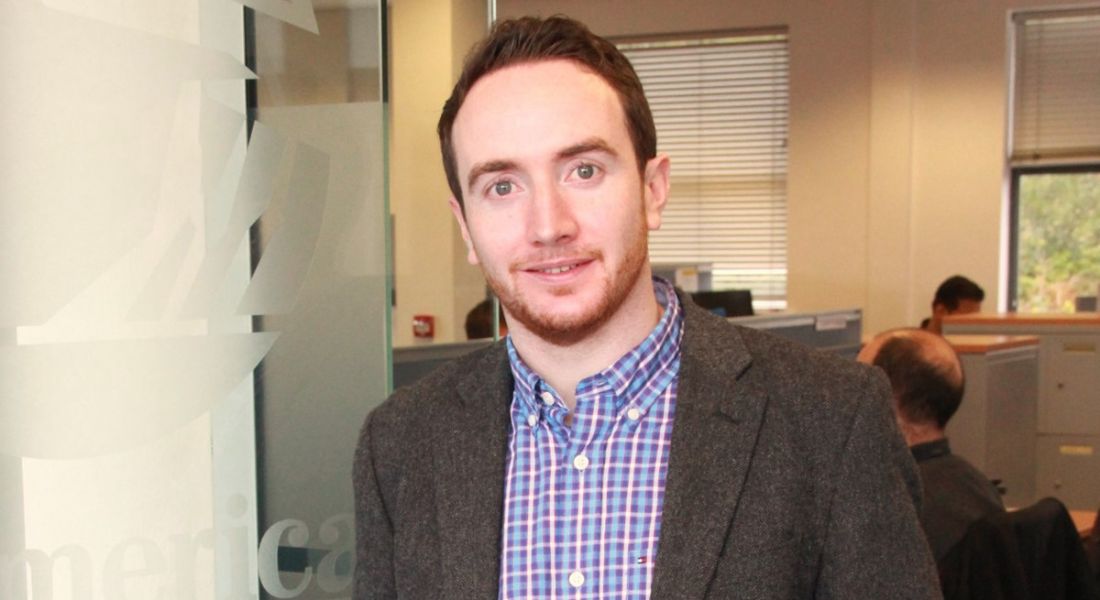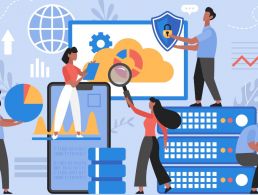Jobs in data science are multiplying fast, and they’re not limited to one field or role. From coding to politics, the need for data scientists will continue to grow over the next few years.
The data science industry casts a wide net over a number of possible careers and roles, but what do data scientists actually do?
Pádraic Sheerin is the VP of data science in leading fintech company, Pramerica. He spoke to us about his role and what a typical day looks like for him.
What is your role within Pramerica?
As VP of data science, I lead a team of data scientists who use data to solve some of the biggest business problems facing the life and retirement industry.
Tell us about your background.
After sitting the final exam of my mathematics and statistics degree at Queen’s University Belfast, I was offered free sandwiches and, as a student, you never turn down free food. It was there that I learned of Allstate Insurance’s desire to have Irish students participate in a quantitative internship program in Chicago, with a long-term goal of building a team in Belfast. Prior to this, I was set on going into investment banking. However, with the financial crisis just starting, [and] the lure of a summer in Chicago and the unique opportunity to create quantitative jobs in Belfast, I decided to give the internship a shot.
What steps led you to this role?
Having a passion for business, data and mathematics, I took naturally to the role of a predictive modeler. We weren’t called data scientists back then and in a few years, we will likely have another name. I was fortunate early in my career to get involved in niche, cutting edge projects using data to develop new products and drive better decisions across many different functions within insurance.
After a few years in a purely technical role, I began leading larger projects and teams as the demand for data science increased and our group started to expand rapidly. From there, I developed an ability to identify many business problems that could benefit from data science, and bridged the gap between business leaders and data science, which has thankfully served me well so far.
If there is such a thing, can you describe a typical day in the job?
At the risk of sounding cliché, there really isn’t a typical day, which is great, since that wouldn’t motivate me. My mornings are usually meeting-free before the US day starts, so I catch up on emails, work on the problems we are solving and provide feedback to the project teams. Early afternoon, we have daily scrums where data scientists and business and technology partners meet quickly to share project statuses and next steps. The remainder of the day is usually a mix of meetings with key partners and stakeholders.
What types of project do you work on?
The data science focus areas can very broadly be divided into three groups:
Enhancing customer experience
Quantifying customers’ propensity to retain, switch and/or purchase new products and services. These models enable us to tailor sales, marketing and services to serve individual customer needs.
Assessing risk
Quantifying risk such as mortality, longevity, morbidity and fraud is essential for robust pricing, underwriting, reserving and claims practices.
Improving business processes
Business processes can be improved by using models to predict the next best course of action. For example, routing call centre calls and the claims management process to enable more efficient and tailored processes that result in a faster, better experience.
What skills do you use on a daily basis?
Critical thinking and problem-solving skills are the most important. Even though I am now less hands-on with writing code, I find that I am constantly synthesising feedback from data scientists, business partners and technology teams in order to help prioritise next steps and refine the project approach. This requires a combination of analytical, relationship and communication skills.
Do you have any productivity tips that help you through the working day?
Lists are important to have, but don’t live by them – always focus on what matters most. I tend to batch tasks and try to avoid distractions when working on items that require a high mental capacity. Turn off email, chat and mobile notifications. Try changing your environment throughout the day, using breakout areas.
How has this role changed as the fintech sector has grown and evolved?
While fintech has many definitions, I like to think of it as using data and technology to provide a great customer experience. A few years back, data science in insurance primarily focused on using as much data as possible to better understand risks, and in some cases, this created long data collection processes for end customers, such as applying for insurance and filing a claim.
We now really put the customer at the centre of everything we do and focus on creating a superior customer experience, while still improving our ability to assess risk. Examples of how we do this are using data to tailor experiences for individual customers and utilising third party data sources to remove the need for the customer to manually provide such information.
What do you enjoy most about the job?
Working with really smart people to build great data-driven products.
Looking for jobs in tech or science? Check out our Employer Profiles for information on companies hiring right now.




